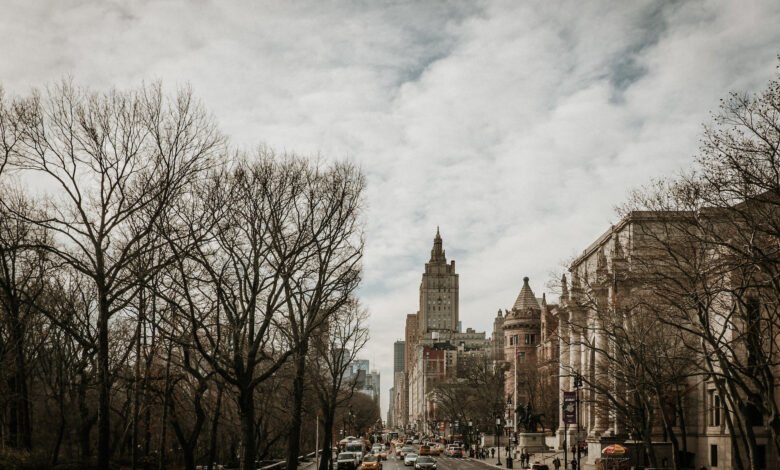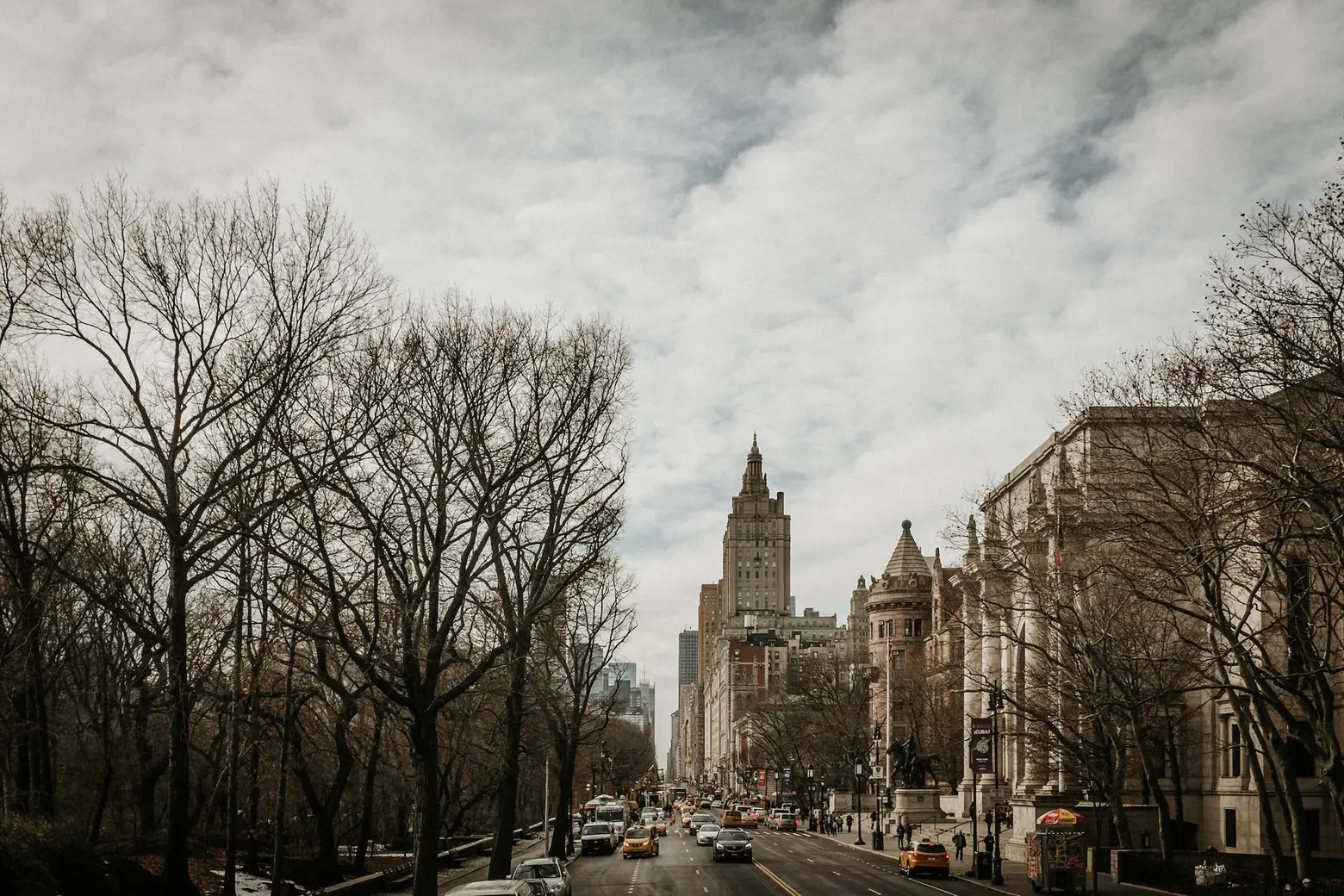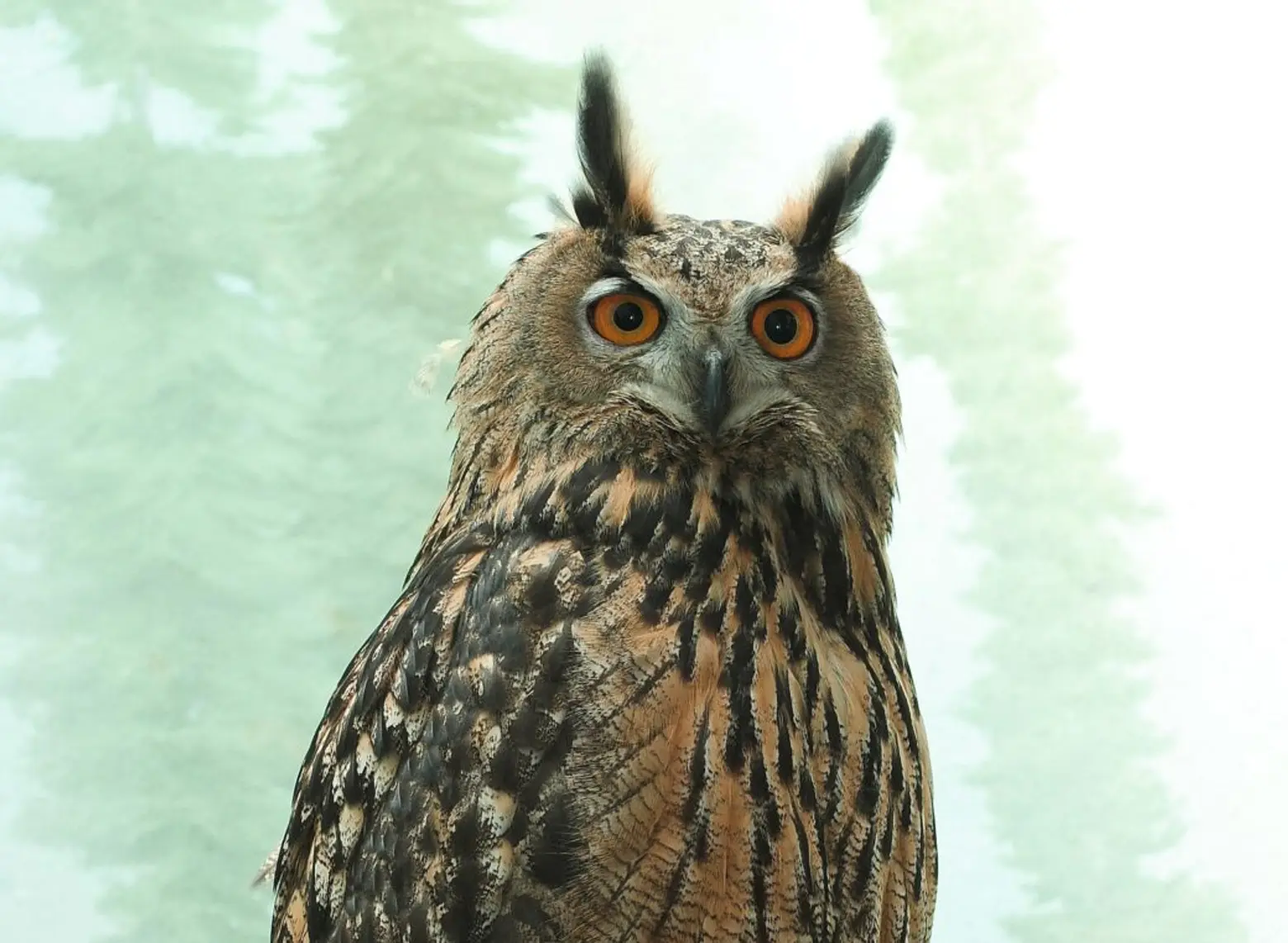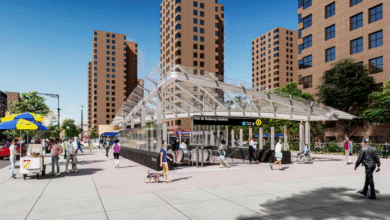

Following the death of Flaco, a beloved Eurasian eagle owl who escaped from the Central Park Zoo and delighted New Yorkers over the last year, the city’s bird strike problem has once again come under the spotlight. Flaco died on Friday after colliding with a building on the Upper West Side, according to the zoo. State Sen. Brad Hoylman-Sigal and Assembly Member Anna Kelles on Monday renewed a push for their legislation addressing bird safety, including bills to require state buildings to implement bird-friendly designs and mandate non-essential outdoor lighting be turned off overnight.

The first bill, originally called the Bird Safe Buildings Act, will be renamed the FLACO Act (“Feathered Lives Also Count” Act) in honor of the late owl. The law would require any new or “significantly altered” state buildings to incorporate bird-safe designs, especially in their windows.
Roughly 250,000 birds die every year in NYC due to collisions with buildings.
The second piece of legislation, the Dark Skies Protection Act, would reduce light pollution in the five boroughs by requiring most non-essential outdoor lighting to be covered, made motion-activated, or turned off from 11 a.m. to 5 a.m.
Approximately 80 percent of migrating birds travel at night but are drawn off their natural flight path by disorienting lights in urban areas that cause them to fly into buildings, windows, and other tall structures. Birds will not be the only ones to benefit from the act, as light pollution is proven to be harmful to human health and mental well-being.
“I’m gutted at the death of Flaco the owl, who delighted countless New Yorkers through his presence in Central Park. His death after apparently striking a glass window pane raises the importance of our passing common-sense laws to help stop preventable window strikes, which kill millions of birds, like Flaco, each year,” Hoylman-Sigal said.
“By renaming our legislation to require state-owned buildings to incorporate bird friendly designs, we’ll not only honor this magnificent creature, but hopefully inspire our legislative colleagues to pass both the FLACO Act and the Dark Skies Protection Act.”
Flaco had captured the hearts of New Yorkers as he was seen flying around Manhattan and Central Park after escaping from his habitat at the zoo, which was vandalized. The owl was found dead after reportedly colliding with an apartment building on West 89th Street.
The findings of a necropsy performed by Central Park Zoo pathologists indicate the owl’s death was due to acute traumatic injury, according to a press release. While the evidence supports the claims that he collided with a building, pathologists will now determine if any underlying factors negatively impacted his health in the lead-up to the event.
In December 2019, the City Council approved a bill that requires new buildings to be constructed with bird-safe materials. One of the most extensive policies of its kind in the nation, the legislation mandates new glass buildings, as well as those undergoing major renovations, to be outfitted with materials that are easier for birds to see.
The bill’s approval followed an uptick in mass bird death incidents, specifically an event on September 14, 2021, when volunteers from NYC Audubon spent hours collecting the corpses of more than 200 birds that had collided with skyscrapers in Lower Manhattan.
Hoylman-Sigal first introduced the Dark Skies Act in January 2022 to prevent the deaths of migratory birds and reduce light pollution. The act followed a series of bills designed to combat the death of birds from light pollution. In 2014, the state passed a bill that reduced external light from state-owned buildings.
RELATED:




